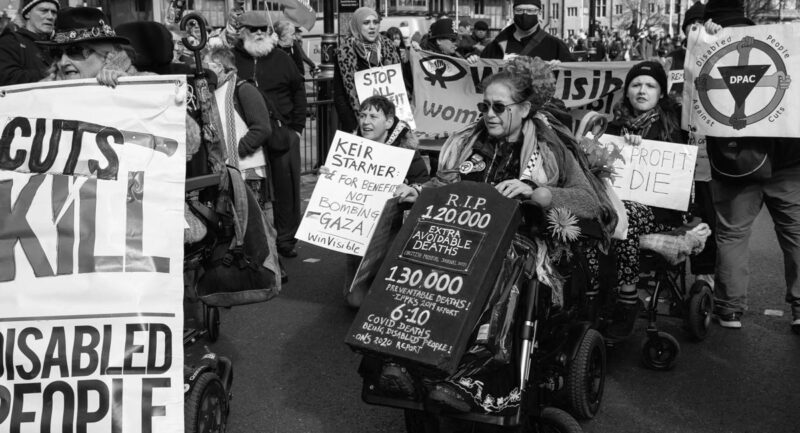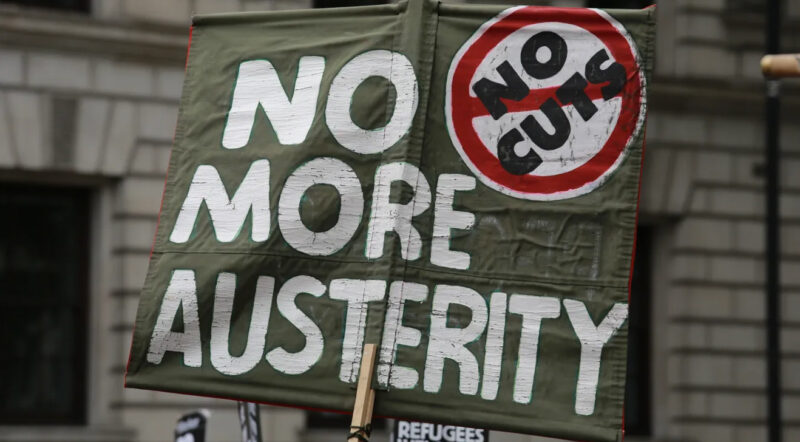30 June and beyond
 Jeremy Dewar outlines a strategy for how to go forward after the co-ordinated strikes on June 30
Jeremy Dewar outlines a strategy for how to go forward after the co-ordinated strikes on June 30
In this issue of Workers Power we take a detailed look at the unions in preparation for the coordinated strikes on 30 June, because we recognise that this represents a key moment in the fight to stop the cuts. Although the strikes are mainly in defence of public sector pensions, many rightly see them as a broadside against the Coalition’s whole agenda of cuts and privatisation.
We call on all activists to support these strikes as best they can: by taking action, joining picket lines, attending demos and rallies. Some have taken their cue from the Arab Spring and the #spanishrevolution and are planning to camp out in town squares across the country. Excellent – let’s bring the spirit of Cairo and Madrid to London, Manchester and Glasgow!
This will send out the message that 30 June should just be the start, not the highpoint of the fightback. However one day strikes will not stop the cuts. The NUT and its leading faction the Socialist Teachers Alliance are not thinking about follow-up action until October at the earliest, when they hope Unison and the head teachers might come on board.
Not only would this lose any momentum created by the June strikes, it would give the government three months to divide and rule. There are already rumours that Education Secretary Michael Gove is considering making the teachers a “special case” for retaining some pension rights. If the teachers are bought off or Unison’s leaders refuse to expand the forces on strike, the co-ordination could unravel.
We need a new approach. The PCS showed the way by balloting all its members over pensions, jobs, pay and conditions and declaring that any branch or section could use the ballot to stop attacks on any of these issues. The teachers should do the same, declaring action against the privatisation and break-up of state education. These wider issues make it far more difficult for the Tories to defuse action with partial concessions.
The unions should agree to sharply escalate the action, quickly progressing to an all-out, indefinite strike. Leaders should show workers they intend to win this battle by seizing the initiative and hitting the Tories where it hurts.
They should also link the strikes with joint strike committees, directly elected at every level of the movement: workplace, regional and national. All negotiations should be open and controlled by those on strike: no secret talks and no entering separate agreements.
Each union in the bloc should give a precise meaning to the adage, “An injury to one is an injury to all”. None should settle until every section has won its demands.
Will this trigger the use of the anti-union laws? Undoubtedly, which is why we must prepare to defy them. Lib Dem MP John Hemming revealed Ryan Giggs’ name, saying “it is obviously impracticable to imprison “75,000 Twitter users”. How about 750,000 trade unionists, then?
This is a strategy not even the most left wing of our union leaders is prepared to contemplate. Why? Because it would threaten their role as leaders and their non-aggression pact with the right wing leaders. As one PCS executive member told a left union caucus meeting last month, “Don’t expect me to criticise Unison’s leaders publically, because officially we’re friends.”
A rank and file movement, independent of the whole bureaucracy, is essential if we are to stop the cuts. For too long, the left – including the Socialist Party and the Socialist Workers Party – have side-stepped this issue, preferring to block with the left union leaders and trim their policy to what they will accept. Now is the time to break with this bad tradition and tell workers frankly on 30 June what is needed to win.






